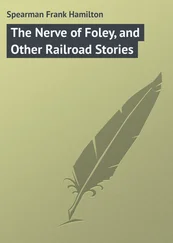“No,” Carmichel said. He began to fire the brake rocket slowly, easing the ship down.
“Someday, when the war is over,” Basset said, “I want to ask the Ganymedeans about this. I’d like to find out the whole story.”
“Maybe you’ll get your chance,” Groves said, suddenly sobered. “That’s right. Ganymede! Our chance to win the war certainly fizzled.”
“The Senate Leader is going to be disappointed,” Carmichel said grimly. “You may get your wish very soon, Doctor. The war will probably be over shortly, now that we’re back—empty handed.”
The slender yellow Ganymedean moved slowly into the room, his robes slithering across the floor after him. He stopped, bowing.
Commander Carmichel nodded stiffly.
“I was told to come here,” the Ganymedean lisped softly. “They tell me that some of our property is in this laboratory.”
“That’s right.”
“If there are no objections, we would like to—”
“Go ahead and take it.”
“Good. I am glad to see there is no animosity on your part. Now that we are all friends again, I hope that we can work together in harmony, on an equal basis of—”
Carmichel turned abruptly away, walking toward the door. “Your property is this way. Come along.”
The Ganymedean followed him into the central lab building. There, resting silently in the center of the vast room, was the globe.
Groves came over. “I see they’ve come for it.”
“Here it is,” Carmichel said to the Ganymedean. “Your spaceship. Take it.”
“Our time ship, you mean.”
Groves and Carmichel jerked. “Your what?”
The Ganymedean smiled quietly. “Our time ship.” He indicated the globe. “There it is. May I begin moving it onto our transport?”
“Get Basset,” Carmichel said. “Quick!”
Groves hurried from the room. A moment later he returned with Doctor Basset.
“Doctor, this Gany is after his property.” Carmichel took a deep breath. “His—his time machine.”
Basset leaped. “His what? His time machine?” His face twitched. Suddenly he backed away. “This? A time machine? Not what we—Not—”
Groves calmed himself with an effort. He addressed the Ganymedean as casually as he could, standing to one side, a little dismayed. “May we ask you a couple of questions before you take your—your time ship?”
“Of course. I will answer as best I can.”
“This globe. It—it goes through time? Not space? It’s a time machine? Goes into the past? Into the future?”
“That is correct.”
“I see. And nesi on the dial, that’s the present.”
“Yes.”
“The upward reading is the past?”
“Yes.”
“The downward reading is the future, then. One more thing. Just one more. A person going back into the past would find that because of the expansion of the universe—”
The Ganymedean reacted. A smile crossed his face, a subtle, knowing smile. “Then you have tried out the ship?”
Groves nodded.
“You went into the past and found everything much smaller? Reduced in size?”
“That’s right—because the universe is expanding! And the future. Everything increased in size. Expanded.”
“Yes.” The Ganymedean’s smile broadened. “It is a shock, is it not? You are astonished to find your world reduced in size, populated by minute beings. But size, of course, is relative. As you discover when you go into the future.”
“So that’s it.” Groves let out his breath. “Well, that’s all. You can have your ship.”
“Time travel,” the Ganymedean said regretfully, “is not a successful undertaking. The past is too small, the future too expanded. We considered this ship a failure.”
The Gany touched the globe with his feeler.
“We could not imagine why you wanted it. It was even suggested that you stole the ship to use—” the Gany smiled—”to use to reach your colonies in deep-space. But that would have been too amusing. We could not really believe that.”
No one said anything.
The Gany made a whistling signal. A work crew came filing in and began to load the globe onto an enormous flat truck.
“So that’s it,” Groves muttered. “It was Terra all the time. And those people, they were our ancestors.”
“About fifteenth century,” Basset said. “Or so I’d say by their costumes. Middle Ages.”
They looked at each other.
Suddenly Carmichel laughed. “And we thought it was—We thought we were at—”
“I knew it was only a child’s story,” Basset said.
“A social satire,” Groves corrected him.
Silently they watched the Ganymedeans trundle their globe out of the building, onto the waiting cargo ship.
“When I look back,” Mary Fields said, “I marvel that we ever could have grown up without a Nanny to take care of us.”
There was no doubt that Nanny had changed the whole life of the Fields’s house since she had come. From the time the children opened their eyes in the morning to their last sleepy nod at night, Nanny was in there with them, watching them, hovering about them, seeing that all their wants were taken care of.
Mr. Fields knew, when he went to the office, that his kids were safe, perfectly safe. And Mary was relieved of a countless procession of chores and worries. She did not have to wake the children up, dress them, see that they were washed, ate their meals, or anything else. She did not even have to take them to school. And after school, if they did not come right home, she did not have to pace back and forth in anxiety, worried that something had happened to them.
Not that Nanny spoiled them, of course. When they demanded something absurd or harmful (a whole storeful of candy, or a policeman’s motorcycle) Nanny’s will was like iron. Like a good shepherd she knew when to refuse the flock its wishes.
Both children loved her. Once, when Nanny had to be sent to the repair shop, they cried and cried without stopping. Neither their mother nor their father could console them. But at last Nanny was back again, and everything was all right. And just in time! Mrs. Fields was exhausted.
“Lord,” she said, throwing herself down. “What would we do without her?”
Mr. Fields looked up. “Without who?”
“Without Nanny.”
“Heaven only knows,” Mr. Fields said. After Nanny had aroused the children from sleep—by emitting a soft, musical whirr a few feet from their heads—she made certain that they were dressed and down at the breakfast table promptly, with faces clean and dispositions unclouded. If they were cross Nanny allowed them the pleasure of riding downstairs on her back.
Coveted pleasure! Almost like a roller coaster, with Bobby and Jean hanging on for dear life and Nanny flowing down step by step in the funny rolling way she had.
Nanny did not prepare breakfast, of course. That was all done by the kitchen. But she remained to see that the children ate properly and then, when breakfast was over, she supervised their preparations for school. And after they had got their books together and were all brushed and neat, her most important job: seeing that they were safe on the busy streets.
There were many hazards in the city, quite enough to keep Nanny watchful. The swift rocket cruisers that swept along, carrying businessmen to work. The time a bully had tried to hurt Bobby. One quick push from Nanny’s starboard grapple and away he went, howling for all he was worth. And the time a drunk started talking to Jean, with heaven knows what in mind. Nanny tipped him into the gutter with one nudge of her powerful metal side.
Sometimes the children would linger in front of a store. Nanny would have to prod them gently, urging them on. Or if (as sometimes happened) the children were late to school, Nanny would put them on her back and fairly speed along the sidewalk, her treads buzzing and flapping at a great rate.
Читать дальше












